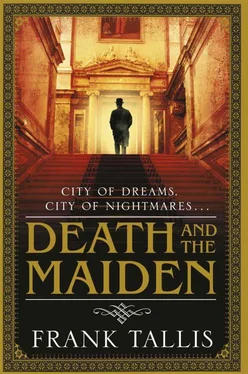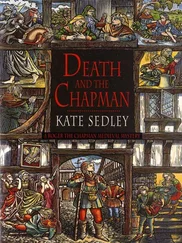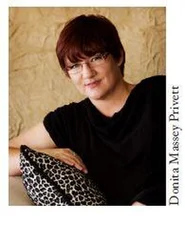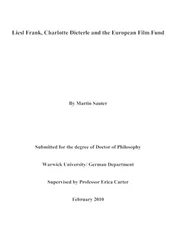Frank Tallis - Death And The Maiden
Здесь есть возможность читать онлайн «Frank Tallis - Death And The Maiden» весь текст электронной книги совершенно бесплатно (целиком полную версию без сокращений). В некоторых случаях можно слушать аудио, скачать через торрент в формате fb2 и присутствует краткое содержание. Жанр: Исторический детектив, на английском языке. Описание произведения, (предисловие) а так же отзывы посетителей доступны на портале библиотеки ЛибКат.
- Название:Death And The Maiden
- Автор:
- Жанр:
- Год:неизвестен
- ISBN:нет данных
- Рейтинг книги:5 / 5. Голосов: 1
-
Избранное:Добавить в избранное
- Отзывы:
-
Ваша оценка:
- 100
- 1
- 2
- 3
- 4
- 5
Death And The Maiden: краткое содержание, описание и аннотация
Предлагаем к чтению аннотацию, описание, краткое содержание или предисловие (зависит от того, что написал сам автор книги «Death And The Maiden»). Если вы не нашли необходимую информацию о книге — напишите в комментариях, мы постараемся отыскать её.
Death And The Maiden — читать онлайн бесплатно полную книгу (весь текст) целиком
Ниже представлен текст книги, разбитый по страницам. Система сохранения места последней прочитанной страницы, позволяет с удобством читать онлайн бесплатно книгу «Death And The Maiden», без необходимости каждый раз заново искать на чём Вы остановились. Поставьте закладку, и сможете в любой момент перейти на страницу, на которой закончили чтение.
Интервал:
Закладка:
‘That’s what the note said.’
The old man rose by pushing down on the chair arms. He stood, rather shakily, for a second or two during which he excecuted a bow and declared himself to be ‘Herr Udalbert Kluge.’ He then fell back into the chair.
Rheinhardt clicked his heels.
‘Thank you so much for agreeing to see me, sir.’
Frau Kluge sat next to her husband and took his hand.
‘Udalbert has not been well.’
‘Indeed. I was informed of this by Professor Saminsky. Would you object to me sitting down?’
‘No.’
‘That is most generous.’
Rheinhardt found himself a stool and drew it up in front of the couple.
‘What is the nature of your illness, Herr Kluge?’
The old man grumbled. ‘They say that I observe things in the world that have no material reality.’
Frau Kluge stroked her husband’s sleeve. ‘Don’t fret, my dear.’
‘Good Christians believe in the existence of angels and demons — and no one says that they are mad.’
‘No one has said you are mad, my dear.’
‘But that is what they think: that is what Saminsky thinks.’
‘He says that you have weak nerves.’
‘I’ve had enough of his electrical therapy. It’s unpleasant. He said it would just tingle — but the rods are hot. They burn. And those pills of his, they make me all confused.’
Rheinhardt coughed to attract their attention.
‘I understand that Professor Saminsky came to see you on the evening of September the seventh.’ Kluge’s moist eyes were unresponsive. Rheinhardt turned to address the wife. ‘Is that correct, Frau Kluge? Your husband was very unwell and you called Professor Saminsky?’
‘The professor has had to come on several occasions,’ Frau Kluge answered. But I can’t remember exactly when. He came in August … and early September. It could have been the seventh.’
‘You keep no records?’
‘No.’
‘On those occasions when he came, can you remember what time Professor Saminksy arrived?’
‘It was quite late, I think.’
‘How is it that you can remember the time, but not the date?’
‘When Herr Kluge has a turn it is usually after dinner. We eat at half past eight.’
Herr Kluge raised a wrinkled finger: ‘The point is this, Inspector. We live in a Christian country.’ His voice had become querulous. ‘Belief in non-material entities is Church doctrine. Did not Jesus cast out demons, and did He not transfer them into the herd of Gadarene swine? One cannot question the word of God. Given the choice between Saminsky and God, who would you believe? The old man paused, bit his lip and added, ‘They say he’s Jewish.’
‘God?’ Rheinhardt replied. ‘He may very well be.’
44
Rheinhardt rang the doorbell. It was was answered by the maid, who looked even wearier than she had on the occasion of his first visit with Liebermann.
‘I would like to see Professor Saminsky.’
‘I’m afraid he is not in.’
‘Do you know when he’s expected back?’
‘I will have to ask the mistress.’
‘Frau Professor is at home?’
‘Yes.’
‘Then perhaps I could speak to her?’
Rheinhardt was shown into the drawing room where he was once again at liberty to contemplate the opulent decor and trappings of Saminsky’s success. His gaze lingered on the Ehrbar piano before it climbed to the family portrait — the professor, his dowdy wife and two daughters. Rheinhardt crossed to the window and looked out onto a lawn aggrandised with classical statuary. From the serpent that coiled around his hefty staff, Rheinhardt recognised Asclepius, the god of medicine and healing. The deity had so far favoured and protected the Saminsky household, but Greek gods were notoriously fickle.
The double doors opened and Frau Saminsky entered, followed by the maid.
‘Inspector Rheinhardt?’
‘Frau Professor.’
Rheinhardt was surprised to discover that Frau Saminsky had aged rather well. She had lost some weight and her appearance was no longer dowdy, quite the opposite. She wore a red and purple striped blouse with a yellow dress which was as vivid as dandelions — clashing colours that announced her arrival like a cymbal crash. The dull matronly expression of the portrait had been replaced by the wide professional smile of a woman accustomed to hosting dinner parties.
‘I am so sorry, but my husband isn’t at home.’
‘Then perhaps you could help me?’
Frau Saminsky delivered a sympathetically modulated reply: ‘But I’m not sure that I can.’ Rheinhardt’s unyielding expression made her add, ‘Of course, I’ll try to help … Would you like some tea?’
‘No, thank you.’
Without making eye contact with the maid, Frau Saminsky raised a finger and made a flicking movement. It was all that was required to communicate the maid’s redundancy. A general sagging of the young woman’s body sufficed as a curtsey before she departed from the room.
‘Please sit down, Inspector.’
As Frau Saminsky lowered herself onto the seat she fanned out her dress. A glimmering in the fabric suggested that a metallic thread had been woven into the silk.
‘Where is Professor Saminsky?’
‘He cancelled his clinic.’
‘An emergency?’
‘Not a medical emergency — no — but, nevertheless, a matter of some importance. You are still investigating the death of Ida Rosenkrantz?’
‘Yes.’
‘So sad …’ said Frau Saminsky. ‘She was such delightful company.’
‘Did you know her?’
‘She came to dine with us on many occasions.’ Rheinhardt did not show his surprise. ‘Professor Saminsky thought it would be good for her. She had no family of her own. Not here in Vienna. I think her mother went to live in Italy.’
‘What was she like?’
‘The girls adored her.’ Frau Saminsky looked over at the family portrait. ‘They were devastated when they heard what had happened.’
‘Frau Professor? Your husband — where can I find him?’
Frau Saminsky straightened her back and raised her bosom. Adopting an attitude of haughty pretension she replied, ‘The palace.’ The effect she had worked so hard to achieve, however, was immediately ruined when her powdered face broke into a self-satisfied smile.
‘The palace,’ Rheinhardt repeated.
‘Yes. My husband is often called to the palace. He is a trustee of several charities patronised by the late empress.’
‘When are you expecting him to return?’
‘I am not. I will be going to the palace myself, this evening. We have been invited to a ball in the Redoutensaal.’
‘A great honour.’
‘Indeed.’
Rheinhardt produced his notebook. ‘Frau Professor, what were you doing the night Fraulein Rosenkrantz died?’
‘Nothing. I was at home.’
‘And what about Professor Saminsky?’
‘He was at home too.’ She reflected on her answer and added, ‘Well, for most of the evening. The telephone kept on ringing and in the end my husband had to go out.’
‘To see a patient?’
‘Yes. Kluge, I think. It was all very inconvenient. My poor husband was leaving for Salzburg the following morning and had booked an early train.’
‘What time did your husband return?’
‘I don’t know. I went to sleep and when I awoke he had already gone.’ Frau Saminksy frowned. ‘With respect, Inspector, I think it would be advisable to ask my husband these questions.’
‘Of course,’ said Rheinhardt, rising from the sofa. ‘Would you be kind enough to tell Professor Saminsky that I need to speak with him again — at his earliest convenience.’ Rheinhardt handed Frau Saminsky his card. ‘I can be contacted at the Schottenring police station.’
Читать дальшеИнтервал:
Закладка:
Похожие книги на «Death And The Maiden»
Представляем Вашему вниманию похожие книги на «Death And The Maiden» списком для выбора. Мы отобрали схожую по названию и смыслу литературу в надежде предоставить читателям больше вариантов отыскать новые, интересные, ещё непрочитанные произведения.
Обсуждение, отзывы о книге «Death And The Maiden» и просто собственные мнения читателей. Оставьте ваши комментарии, напишите, что Вы думаете о произведении, его смысле или главных героях. Укажите что конкретно понравилось, а что нет, и почему Вы так считаете.












